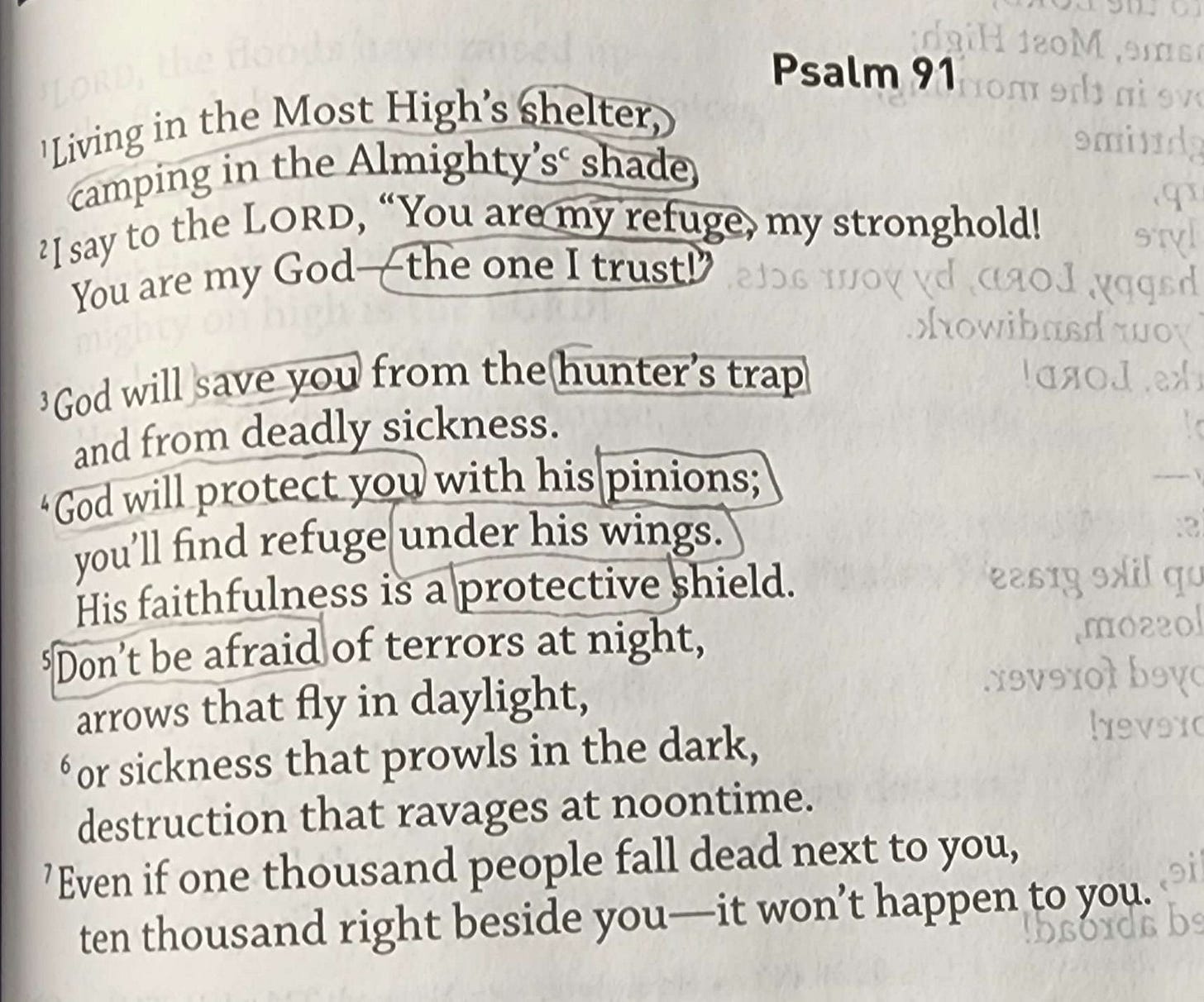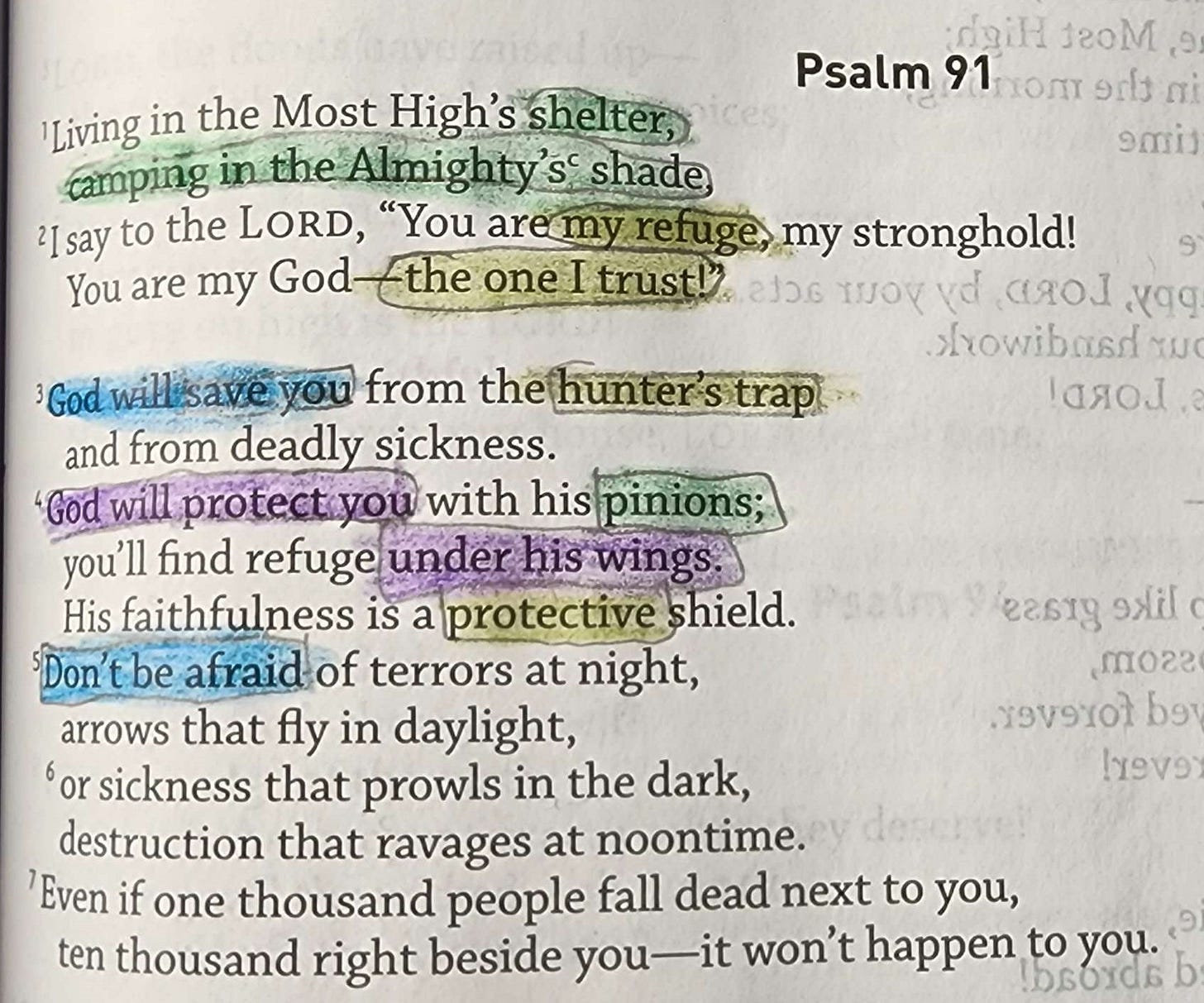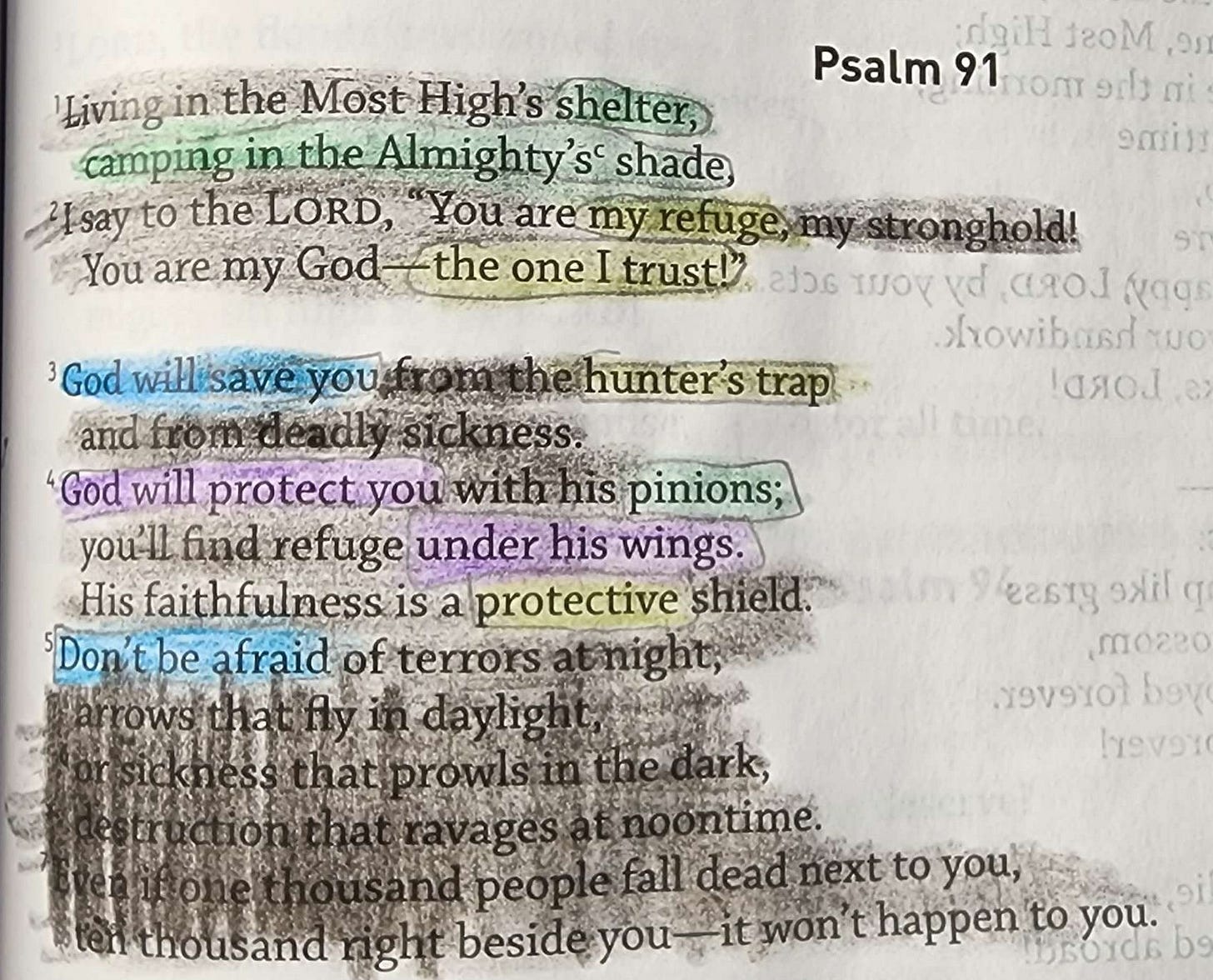The {REDACTED} Method
John Angermayr presents a new look at Lectio Divina
As we move into and through this holy season of Lent, I want to offer a new way of interacting with Scripture, specifically the Psalms; this may shed some light on our own journeys, circumstances, and theologies.
I have been developing this practice over the last couple of years and have found this to be enlightening and oddly poetic in many ways. Set aside 20-30 minutes each time you do this process and see where the Spirit takes you.
Welcome to The {REDACTED} Psalms.
Holy Writings are relational.
We are meant to interact with them, not simply read them and continue our day. The purpose of this guide is to walk you through a method of contemplation that shifts our thinking outside of the “word for word” definitions of Holy Writings. This is to find new meaning, look at passages through different lenses, and interact with Scripture as a living, breathing document.
Invite the Holy Spirit into this practice, and see what Wisdom is there to be found. Allow the Spirit to refocus your attention on the specific pieces that provide meaning in our unique situations.
Directions are provided below; please read through them thoroughly before you begin. My recommendation is to print out a copy of the Psalm you wish to use to use colored pencils or markers or use the highlight function in a word document for a slightly speedier method. You will find a copy of the reflection questions and Psalm 91 at the bottom of the directions.
Directions
Before you begin working your way through the steps below, take a minute or two to center yourself. Do this in whatever way works best for you. I prefer to do the following breath prayer at least four times before beginning. Keep the reflection questions in mind, but you don’t have to answer them until the end.
Step 1:
Read through the full Psalm to familiarize yourself with it. Even if it’s a passage you know by heart, read it with new eyes.
Question 1: What do you hear/see/receive from the original passage?
Return to Breath Prayer
Step 2:
Read the Psalm again, circling or drawing boxes around words or phrases that stand out to you. (suggestion: do this in pencil)
Return to Breath Prayer
Step 2a: (Optional)
Go back through the passage with a colored pencil and color in the circles or boxes you made around the words that stood out. E.g., Purple: Royalty language.
Return to Breath Prayer
Step 3:
Black out/{REDACT} the words you did not circle. This will leave you with the words and phrases that stood out to you.
Question 2: How did the passage change when you {REDACTED} the uncircled parts of the Psalm?
Return to Breath Prayer
Step 4:
Rewrite the passage using only what you circled. (Optional) Start by keeping the words and phrases in the order they appear in the passage. Then, play with the order of the words and phrases. How does it change the verse or your understanding of it?
Question 3: What feelings are evoked in light of this “new” reading of the Psalm?
Shelter, camping in the Almighty’s shade,
My refuge, the one I trust!
God will save you
Hunter’s trap.
God will protect you, pinions, under his wings, protective.
Don’t be afraid.
Return to Breath Prayer
Step 5:
Write a brief reflection that answers the questions contained in the activity, plus a couple of final reflection questions.
Question 4: Why did this stand out to me, today?
Question 5: What is one sentence, word, or phrase that I would like to take with me/pray over more?
Return to Breath Prayer
When it comes to our prayer practices, sometimes we need to add a little levity and creativity. When we shake things up a little, new meaning can be found in old favorites and new passages alike. While this technique isn’t meant to replace or create new Scripture, it is meant to get you interacting with Scripture in a new way. I hope this helps you discover something new in the weeks to come.
Join us in this practice and post your own {REDACTED} Psalm on Discord in the #Devotional channel.
Resources:
Reflection Questions
Question 1: What do you hear/see/receive from the original passage?
Question 2: How did the passage change when you {REDACTED} the uncircled parts of the Psalm?
Question 3: What feelings are evoked in light of this “new” reading of the Psalm?
Question 4: Why did this stand out to me, today?
Question 5: What is one sentence, word, or phrase that I would like to take with me/pray over more?
Psalm 91
91 1 Living in the Most High’s shelter,
camping in the Almighty’s shade,
2 I say to the Lord, “You are my refuge, my stronghold!
You are my God—the one I trust!”
3 God will save you from the hunter’s trap
and from deadly sickness.
4 God will protect you with his pinions;
you’ll find refuge under his wings.
His faithfulness is a protective shield.
5 Don’t be afraid of terrors at night,
arrows that fly in daylight,
6 or sickness that prowls in the dark,
destruction that ravages at noontime.
7 Even if one thousand people fall dead next to you,
ten thousand right beside you—
it won’t happen to you.
8 Just look with your eyes,
and you will see the wicked punished.
9 Because you’ve made the Lord my refuge,
the Most High, your place of residence—
10 no evil will happen to you;
no disease will come close to your tent.
11 Because he will order his messengers to help you,
to protect you wherever you go.
12 They will carry you with their own hands
so you don’t bruise your foot on a stone.
13 You’ll march on top of lions and vipers;
you’ll trample young lions and serpents underfoot.
14 God says, “Because you are devoted to me,
I’ll rescue you.
I’ll protect you because you know my name.
15 Whenever you cry out to me, I’ll answer.
I’ll be with you in troubling times.
I’ll save you and glorify you.
16 I’ll fill you full with old age.
I’ll show you my salvation.”1
The Common English Bible Study Bible. Nashville: The Common English Bible, 2011.








I was worried about this one at first since it felt like we were making our own Thomas Jefferson Bible... but then I thought more about it and realized this is just a visual methodology for the Lectio Divina I was taught in Seminary. My brain worshipped the paper that the Bible was printed on more than the Living Word present within the words and my life. I think, when done responsibly, this is an excellent practice!